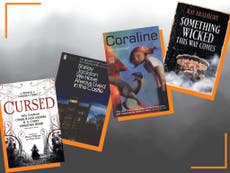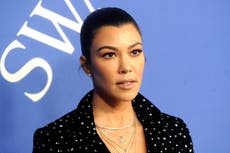RIP Ghostwatch – the last of the great pre-internet scares
Can you conceive, in the online age, of such a programme not being leaked, and speculated on, and picked apart before even a second of it was aired?

By rights, I shouldn’t have even been watching Ghostwatch. It was Saturday, 31 October 1992. I was 22 years old. I could never be found sitting in front of the TV on a Saturday night.
But on this Saturday night – this particular Halloween – I was. I wasn’t on my usual territory of somewhere in the North-West of England. I was down in Weston-super-Mare, in a dark, rickety B&B somewhere near the Westland helicopter factory. There was a christening the next morning – family of my then-girlfriend – and nothing to do on this Saturday night but watch the TV in the room.
What followed was 90 minutes of the most ambiguous, terrifying, clever and ambitious TV in history. It was exactly the sort of thing you could never get away with today.
I say “get away with” and that implies some deliberate attempt to fool, to hoodwink, to hoax. Ghostwatch was not a hoax. It was promoted in the listings as a drama, and nobody ever tried to claim otherwise. But then again, no one went out of their way to advertise the fact that this was not the live TV show it appeared to be, and was in fact a tightly-scripted and closely-directed piece of dramatic fiction.
Ghostwatch purported to be a live programme in the style of, say, Autumnwatch – except with fewer pine martens, and more poltergeists. In the studio was none other than Michael Parkinson, that doyen of television; the man who had interviewed a parade of the highest-calibre stars on the planet.
He was joined by very familiar faces of the day: Sarah Greene, a staple of kids’ TV including Blue Peter and Saturday Superstore; her husband Mike Smith, who had been a Radio 1 DJ and regular on Top of the Pops; and Craig Charles, most familiar to viewers as Dave Lister in the sci-fi comedy Red Dwarf.
Parky and Smitty held the fort in the studio, interviewing experts and fielding what appeared to be live phone-ins from drunks claiming to have seen ghosts, while Greene and Charles were out in the field in a London suburban street… which just happened to have on it a haunted house.
For about half of the show, I thought it was real. I had no reason to believe otherwise. I didn’t scour the TV listings or read the Radio Times, especially for Saturday night viewing, because I was never in.
And it was so expertly done. with familiar stars. Trusted ones, too; it never occurred to me that Parky, an actual national treasure, would be involved in anything that wasn’t real.
It was only when the actual ghosty stuff started happening that I sat there, in that unfamiliar B&B in the middle of nowhere on Halloween night, and thought “nah, surely not… this can’t be real…”
I still had moments of doubt, especially when Mike Smith seemed genuinely panicked when the link to his partner and the outside broadcast team was lost. But I realised for the second half that it was a highly enjoyable and sublimely crafted piece of drama (though I did hold my breath for a moment at the end when the screen went black and there was an agonising silence until the announcer said that Match of the Day was up next).
Ghostwatch was the last great hoax, even though everyone involved in it maintains it wasn’t a hoax at all. But let’s say it was, without casting aspersions on the creators. It fooled us, to greater or lesser degrees; after the show the BBC switchboard was jammed with, at the upper estimate, 50,000 calls either complaining or demanding to know whether what they’d seen was real.
To keep up to speed with all the latest opinions and comment, sign up to our free weekly Voices Dispatches newsletter by clicking here
It was a triumph in 1992, and not one that could be repeated in 2022. Can you imagine if the BBC produced a show with that calibre of talent, and didn’t flood the channel with teasers and interviews about it? Can you conceive, in the internet age, of such a programme not being leaked, and speculated on, and picked apart before even a second of it was aired?
And what tension would have been lost had I – in that dark, creaky B&B in Weston-super-Mare – been able to log on to Twitter to find Ghostwatch trending and everyone talking about how you’d have to be an absolute idiot to think it was real.
Television can’t offer those sorts of surprises anymore. When Ghostwatch aired there were only four channels, no catch-up TV (unless you taped it), no live pause, no +1 channels or regular repeats. Indeed, following the complaints the BBC decided to never show Ghostwatch again. Until it was released on DVD by the British Film Institute a decade after broadcast, it really was one of those shows where you had to be there, at that time, on that day, or you’d just never see it again.
Ghostwatch was a triumph of television – the last of the great unexpected moments of the pre-internet, pre-streaming, pre-flat-screen smart TV age – and we’ll truly never see its like again.





Join our commenting forum
Join thought-provoking conversations, follow other Independent readers and see their replies